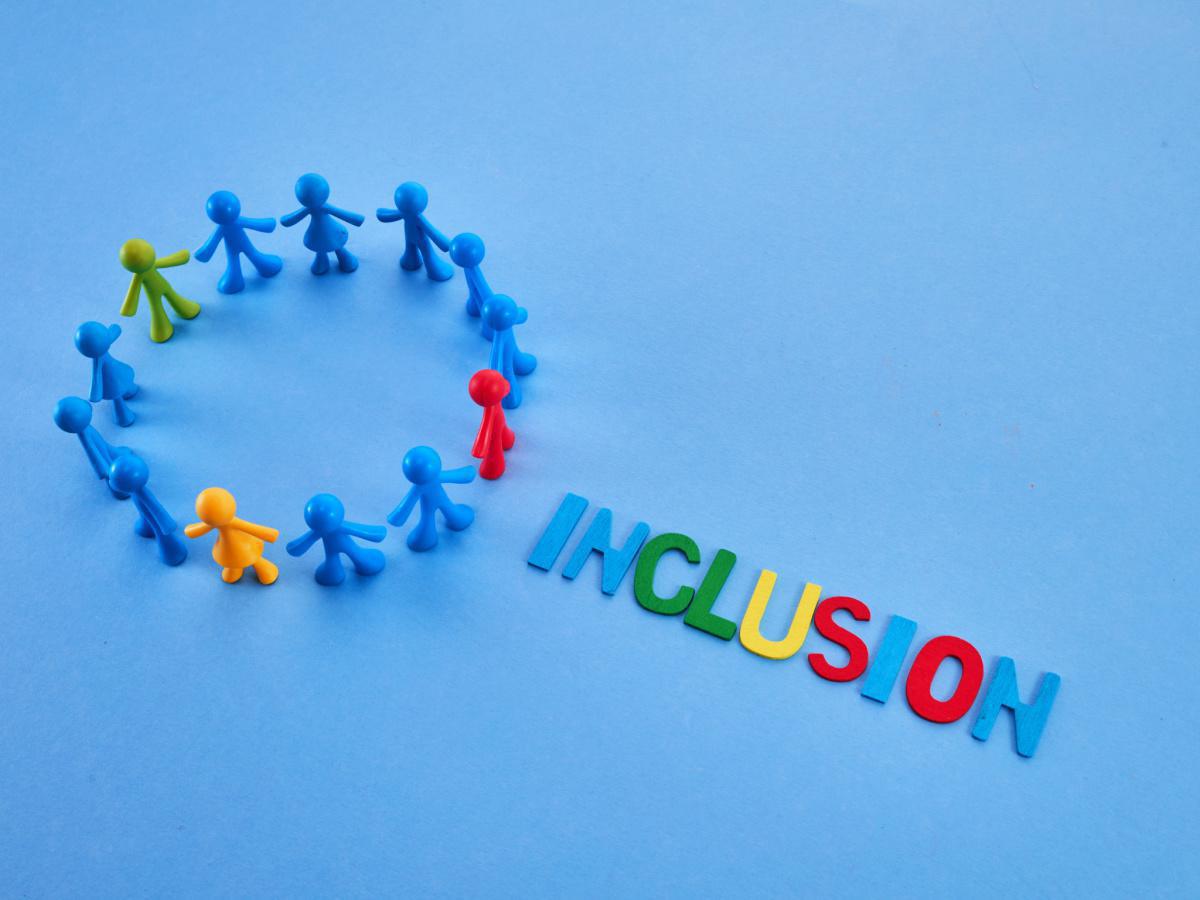National Inclusion week is one of those new annual celebrations, sitting right alongside national careers week and neurodiversity celebration week. The aim is to highlight the importance of inclusion across the UK, particularly in the workplace. This year it falls on the 23rd to the 29th of September, and you probably saw loads of employers doing activities and showcasing how inclusive their workplace is. Which is all great stuff! But this month what we want to really highlight is why inclusion matters, and the negative effects not being included can have on an employee’s mental health.
This Year’s Theme
Every year, National Inclusion Week has a theme to prompt employers and provide a focus for the week, and support their overall inclusion and diversity agenda. This year, the theme was ‘Impact Matters’, which is built around understanding, identifying and measuring the impact on marginalised groups, and taking actions that make for genuine, sustainable change that matters. It was a rallying call for everyone within an organisation – not just HR – to understand and make effective changes,
What Is Inclusion?
The whole idea behind workplace inclusion is to make sure that no employee feels left out because of things like their age, gender, religion, belief, race or other things that make up their social background. In other words, the things that make them, them! It’s making sure people feel welcomed in the workplace, have equal opportunities to participate and contribute, and are actively valued and belong as much as anyone else.
In an ideal world no one would be left out of anything because of these factors, but in reality, it does happen, and more often than we would like to admit. Some signs of a non-inclusive workplace include:
- Lack of diversity in leadership and decision-making roles.
- Certain voices dominate conversations, while others are silenced or overlooked.
- Unequal access to opportunities, promotions, or professional development.
- Employees from marginalized groups face microaggressions or discriminatory behaviour.
- Low employee engagement and high turnover rates, particularly among minority groups.
- Lack of flexible policies that accommodate different needs (for example, parental leave, disability access).
- Inconsistent enforcement of policies on discrimination, harassment, and fairness.
- A culture that discourages open dialogue about inclusion, bias, or inequality.
- Lack of recognition or appreciation for diverse perspectives and contributions.
- Employees feel excluded from social events or decision-making processes.
Anything from microaggressions (subtle forms of discrimination that sometimes aren’t even intentional) and hidden preferences, to hostility and bullying – all of it comes from a workplace culture that doesn’t value inclusivity. And when this kind of thing does happen, it can have very harmful effects.
The Truth About Mental Health And Inclusion In The Workplace
In 2023, there were an estimated 875,000 employees who reported suffering from work-related stress, depression or anxiety. And that’s just the number of people who reported it! Around 1 in 6 people will experience mental health problems, which can range from anxiety, stress and depression to ADHD and other neurodivergences. All of this can be exaggerated or even caused by not feeling included and welcome in the environment. In fact, working in a non-inclusive workplace can have a lot of negative impacts on the mental health of employees, including:
Chronic Stress: Exclusion, discrimination or feeling undervalued can cause a lot of ongoing stress, which can lead to burnout, anxiety and other physical symptoms of stress.
Depression: Feeling marginalised or isolated at work contributes to low self-esteem and hopelessness, which ultimately leads to depression.
Anxiety: If employees have a fear of being judged, or are being ostracized at work, they can feel constantly anxious about their performance, social interactions and even job security, which can impact their wellbeing and performance.
Imposter Syndrome: People who are underrepresented in the workplace often feel inadequate, or question their abilities due to the lack of recognition from management and not feeling like they belong.
Emotional Exhaustion: Dealing with microaggressions, discrimination or exclusion can be incredibly emotionally draining, which makes it harder to cope with daily tasks. This can cause issues in their home life, which can then spiral into other mental health issues.
Low Job Satisfaction: The inability to thrive in a hostile or dismissive environment can lead to dissatisfaction and lack of motivation.
Decreased Self-Worth: Being overlooked or excluded can wear down your confidence, leading to feelings of worthlessness or incompetence.
Social Isolation: Limited inclusion in team activities or decision-making can breed loneliness and a feeling of disconnection from colleagues.
So what can employers do to prevent this? They can take positive actions to create a more inclusive and welcoming environment, and learn how to spot the telltale mental health signs that something isn’t right. Mental health issues in your employees are like the canaries in the mine – they signal that something is wrong, and you need to get to the bottom of it.
At Melp, we work closely with employers all across the country to not only learn about inclusion and mental health, but to build a proactive and preventative approach to mental health in the workplace. We offer strategic and effective education to businesses, giving managers and employees the tools and techniques to look after themselves. We want them to feel they can manage and improve their mental and emotional health, build mental fitness and emotional resilience, and also know where and how to reach out for support should they need it. If you’d like to know more, just get in touch with the team today.

